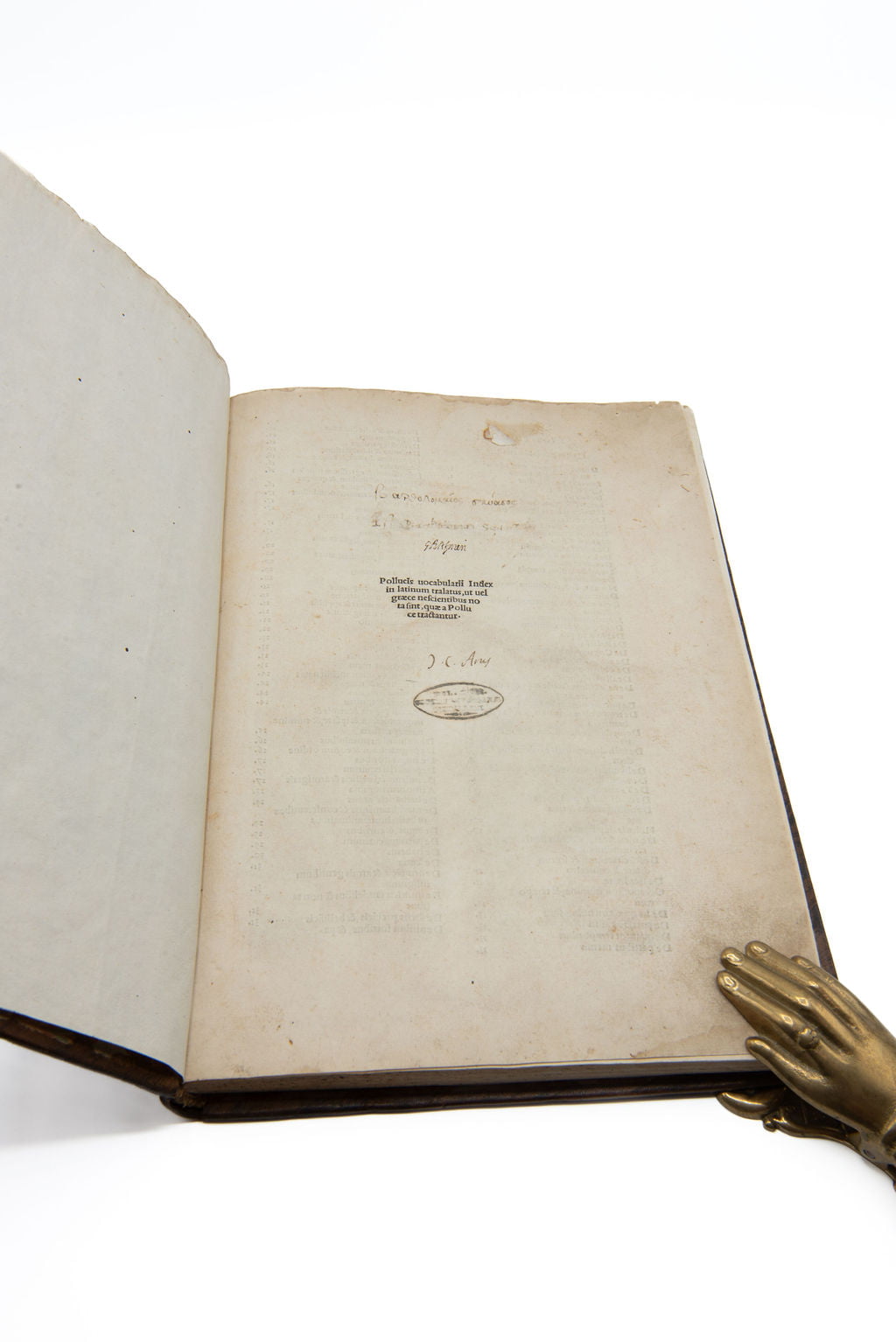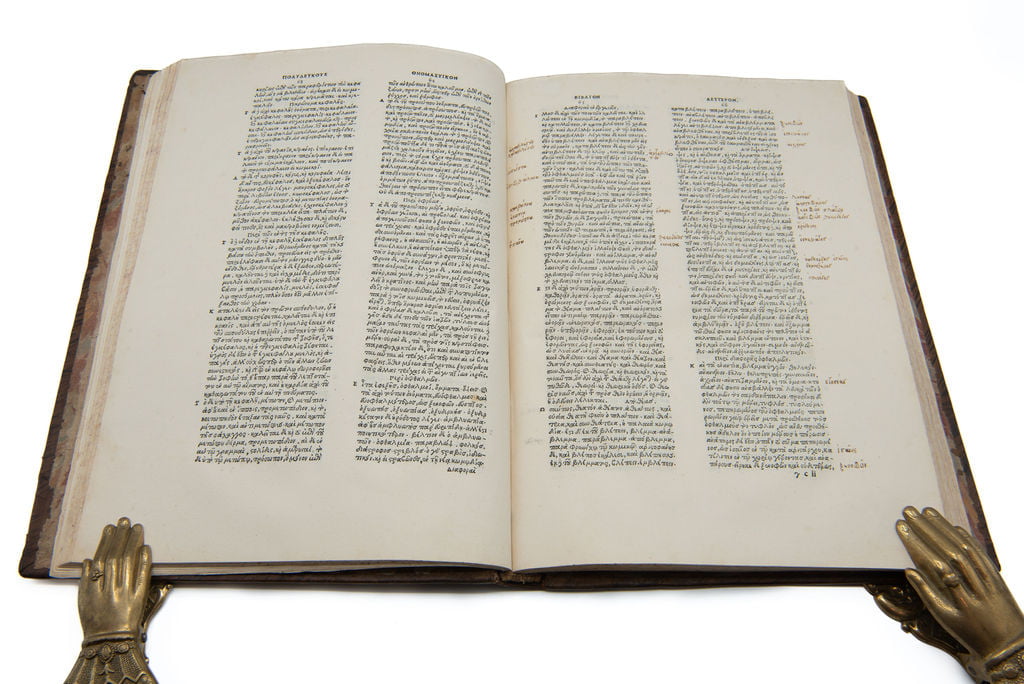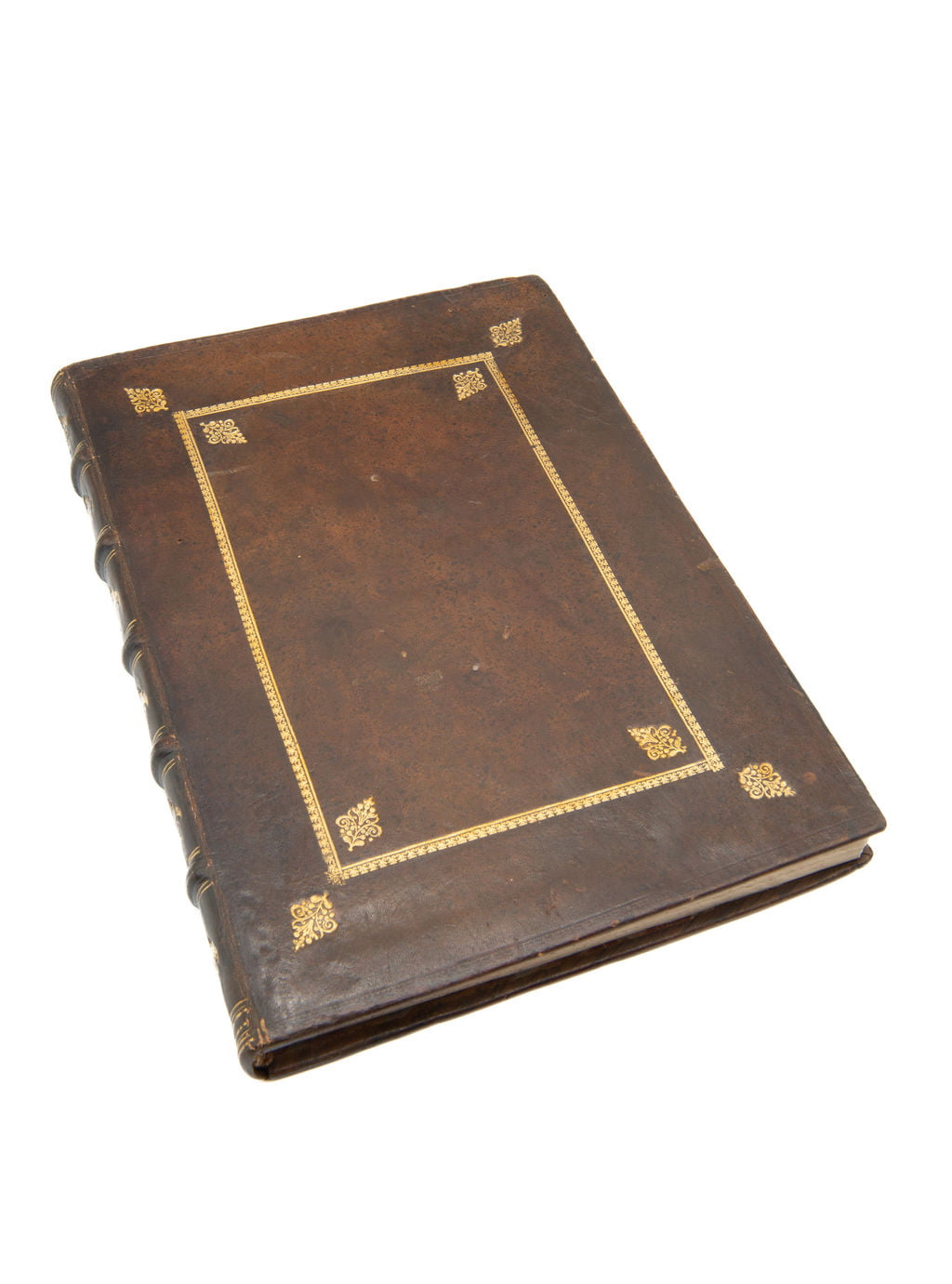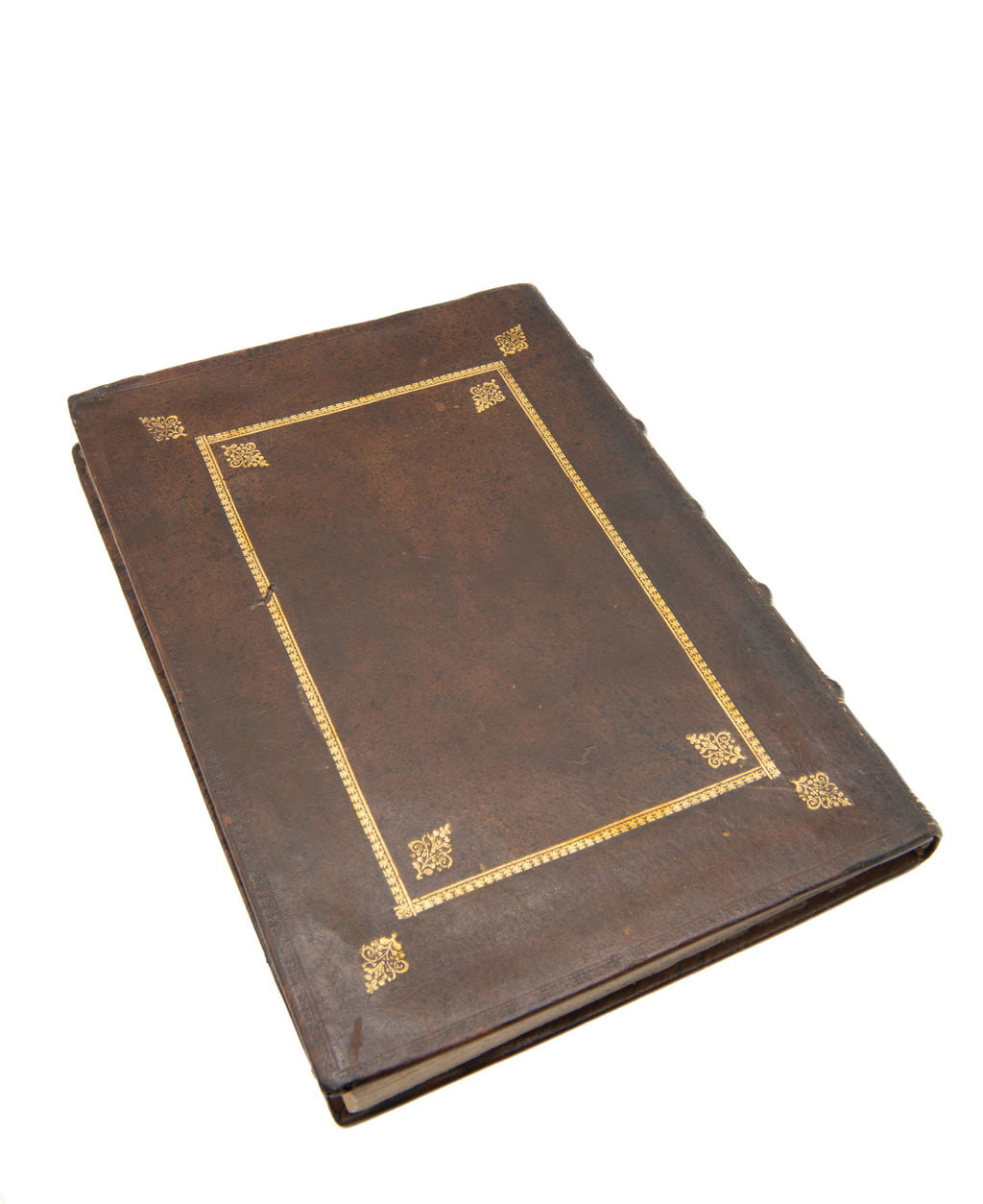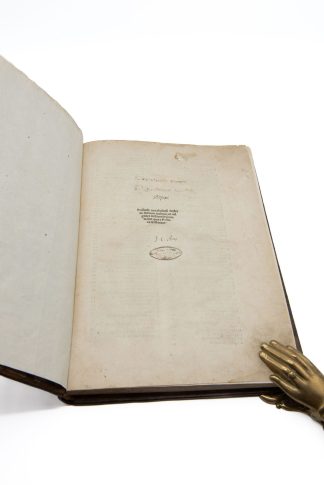POLLUX, Julius
BARTOLOMEO SQUASSI’S COPY
Pollucis vocabularii Index in latinum traslatus. [Iouliou Polydeukous Onomastikon. Iulii Pollucis vocabularium]
Venice, Aldus, 1502£12,500.00
EDITIO PRINCEPS. Folio. ff. (ix) 102 (i), unnumbered, AA a- n . Greek letter, occasional Roman, double column. T-p and verso of last a bit dust-soiled, traces of paper label to upper blank margin of t-p, first few ll. a little finger-soiled in margins, two tiny marginal worm holes, light water stain to upper edge of first and last gathering, small repair to half-title ( i) not affecting text, occasional very slight marginal spotting, the odd mark. A very good copy, on high-quality thick paper, in C17 sprinkled goatskin, expertly rebacked, marbled endpapers, outer border with roll of palmettes in blind, inner gilt with same and gilt large fleurons to outer and inner corners, occasional very minor loss, small creases or tiny worm holes to boards, lacking feps. Contemporary C16 ex-libris in Greek letters ‘Bartolomaios Skiasos’ to t-p (with Italian version ‘Bartolomeo Squassi’ rubbed) to t-p and i, C17 and C18 ex-libris and C19 library stamp (rubbed) to t-p, intermittent contemporary annotations.
Handsome copy of the ‘editio princeps’ of this important Greek dictionary, from the library of a Milanese humanist who funded, in the 1490s, the printing of Greek incunabula. Bartolomeo Squassi (or Squasso, fl. 1490-1510) was secretary of Lodovico Sforza, then regent for Gian Galeazzo, Duke of Milan. With the ducal secretaries Vincenzo Aliprandi and Bartolomeo Rozzone, he contributed to the printing expenses of the ‘editio princeps’ of Isocrates (Milan, 1493) and the Latin ‘Erotemata’ (Milan, 1494), prepared by the major Greek scholar Demetrios Chalcondylas. In the colophon of the ‘Isocrates’, as in the ex-libris in this copy, he appeared as . In 1494, Gian Galeazzo granted Squassi, Calchondylas, Aliprandi and Rozzone a ten-year privilege to print Greek and Latin works, which suggests that, like Calchondylas, ‘they too had acquired an excellent reputation as scholars of the classics’ (Calvi, ‘Castello’, 75).
The ‘Onomastikon’, composed by the Greek grammarian Ioulios Polydeukes (Julius Pollux) in the second century AD, is a lexicon of phrases and synonyms in Attic dialect. Divided by subject, it includes invaluable information on ancient customs, mythology, and everyday life, touching on themes as varied as oracles, poetry, horses, trees, and navigation. This edition is prefaced by two indexes, in Latin and Greek. Squassi used it for practical purposes as he annotated sections on specific subjects including gods’ names, temples, the eyes, body parts, the arts, musical instruments, dance, singing, games and theatre. He wrote on the margins the names of the ancient authors thereby mentioned (especially Aristophanes, Isocrates, Herodotus, Homer, Xenophon and Plato) as well as interesting nouns or verbs, sometimes in different grammatical forms. A handsome Greek Aldine of bibliographical interest.
Renouard 49:4; Ahmanson-Murphy, 54; Brunet IV, 785; BM STC It., p.531. F. Calvi, Il Castello Visconteo-Sforzesco nella storia di Milano (1894).In stock


